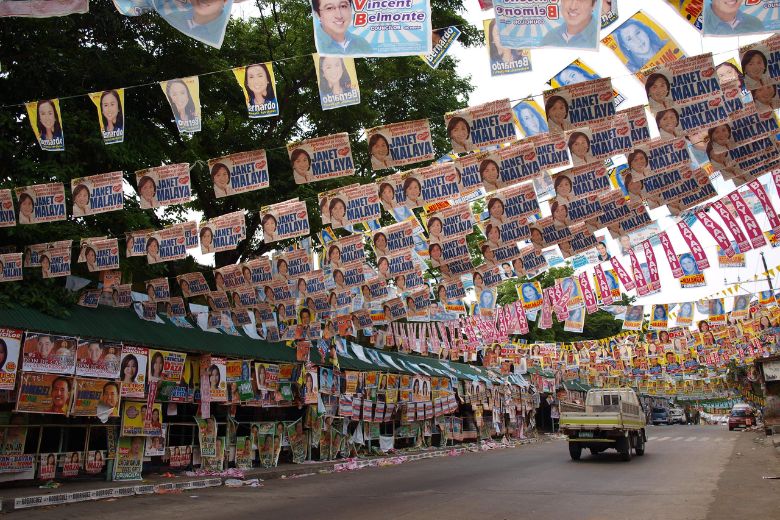Bangladesh Election Commission
In the bustling political landscape of Bangladesh, the Election Commission plays a central role in ensuring transparent and fair democratic processes. With a firm commitment to upholding the principles of democracy, the Election Commission of Bangladesh oversees the crucial task of conducting elections and maintaining electoral integrity.
As the guardian of democracy, the Election Commission strives to create an inclusive environment where every citizen’s voice can be heard through the ballot box. Through its meticulous planning, efficient management, and unbiased conduct of elections, the Commission aims to instill confidence and trust in the electoral system.
Role and responsibilities of the Bangladesh Election Commission
The Bangladesh Election Commission, established in 1972, has been entrusted with the vital responsibility of organizing and supervising all national and local elections in the country. Its primary role is to ensure that elections are conducted in a free, fair, and transparent manner. The Commission is composed of a Chief Election Commissioner and other Election Commissioners who collectively make decisions on electoral matters.
One of the key responsibilities of the Election Commission is to maintain an accurate and up-to-date electoral roll. This involves conducting regular voter registration drives and ensuring that eligible citizens are included in the voter list. The Commission also oversees the delimitation of constituencies, ensuring equal representation for all regions.
History of the Bangladesh Election Commission
The establishment of the Bangladesh Election Commission marked a significant milestone in the country’s journey towards democracy. Following the liberation war in 1971, Bangladesh gained independence from Pakistan and embarked on a path of democratic governance. The Election Commission was formed to ensure that the voice of the people was heard through free and fair elections.
Over the years, the Election Commission has evolved and adapted to the changing political landscape of Bangladesh. It has played a crucial role in organizing parliamentary elections, local government elections, and other electoral processes. Despite facing challenges and controversies, the Commission has remained committed to its mission of upholding democracy.
Key functions of the Bangladesh Election Commission
The Bangladesh Election Commission carries out a range of functions to ensure the smooth conduct of elections. These functions include voter registration, nomination of candidates, election campaigning, polling station management, and result declaration. Each step of the electoral process is carefully monitored and supervised by the Commission to maintain transparency and fairness.
Voter registration is a critical function of the Election Commission, as it ensures that every eligible citizen has the opportunity to exercise their voting rights. The Commission conducts regular campaigns to encourage voter registration and updates the electoral roll to reflect changes in the population. By doing so, it ensures that the electoral process is inclusive and representative of the country’s diverse demographics.
Election processes and procedures in Bangladesh
The election processes and procedures in Bangladesh are designed to ensure that elections are conducted in a transparent and efficient manner. The Election Commission follows a well-defined timeline for each electoral event, starting from the announcement of the election schedule to the declaration of results.
The first step in the election process is the nomination of candidates. Political parties and independent candidates submit their nominations to the Election Commission within a specified timeframe. The Commission carefully scrutinizes the nominations to ensure that candidates meet the eligibility criteria and have fulfilled all legal requirements.
Once the nominations are finalized, the campaign period begins. Political parties and candidates engage in various activities to reach out to voters and present their agendas. The Election Commission monitors the campaign activities to ensure compliance with electoral laws and regulations, including the enforcement of campaign financing limits.
Challenges and controversies faced by the Bangladesh Election Commission
Like any other electoral body, the Bangladesh Election Commission faces numerous challenges and controversies in its quest to conduct free and fair elections. One of the major challenges is the prevalence of electoral violence and intimidation. Political rivalries often escalate during election periods, leading to clashes and disruptions in the electoral process.
Another significant challenge is the issue of voter apathy and disengagement. Despite the efforts of the Election Commission to promote voter awareness and participation, a significant portion of the population remains indifferent towards the electoral process. Addressing this challenge requires sustained efforts to educate citizens about the importance of voting and the impact of their choices on governance.
Controversies surrounding the Election Commission have also emerged from time to time. Critics have questioned the neutrality and impartiality of the Commission, alleging bias in the conduct of elections. The Commission has continuously strived to address these concerns by implementing measures to enhance transparency and accountability.
Measures taken by the Bangladesh Election Commission to ensure free and fair elections
Recognizing the importance of free and fair elections, the Bangladesh Election Commission has implemented various measures to uphold the integrity of the electoral process. One such measure is the introduction of a biometric voter registration system, which aims to eliminate duplicate or fraudulent voter registrations.
The Commission has also taken steps to enhance the transparency of the electoral process by introducing electronic voting machines (EVMs) in select constituencies. EVMs enable faster and more accurate vote counting, minimizing the scope for human errors or manipulation. Additionally, the Commission has strengthened its monitoring and surveillance mechanisms to prevent electoral malpractices.
The role of technology in the Bangladesh Election Commission
Technology plays a crucial role in the functioning of the Bangladesh Election Commission. From voter registration to result declaration, various digital tools and systems are employed to streamline and automate the electoral processes. The Commission has developed a robust online platform for voter registration, making it easier for citizens to enroll or update their voter information.
The use of technology also extends to the polling stations, where electronic voting machines (EVMs) are deployed to facilitate the voting process. EVMs have significantly reduced the time required for vote counting and eliminated the possibility of manual errors. This technological advancement has contributed to the overall efficiency and transparency of the electoral process.
International recognition and collaborations of the Bangladesh Election Commission
The efforts of the Bangladesh Election Commission in conducting free and fair elections have garnered international recognition and appreciation. The Commission has been actively engaged in collaborations and partnerships with various international organizations, such as the United Nations Development Programme (UNDP) and the International Foundation for Electoral Systems (IFES).
These collaborations have facilitated knowledge sharing, capacity building, and technical assistance, enabling the Election Commission to enhance its capabilities and adopt best practices in electoral management. The Commission’s commitment to transparency and accountability has been commended by international observers, further strengthening its credibility and reputation.
Conclusion and future prospects for the Bangladesh Election Commission
The Bangladesh Election Commission continues to be a beacon of hope and trust for the nation, ensuring that the true will of the people is reflected in every election. Through its unwavering commitment to democratic values and efficient administration, the Commission has contributed significantly to the growth and stability of Bangladesh’s democracy.
Looking ahead, the Election Commission must continue to adapt to the evolving political landscape and address the challenges faced in conducting elections. By embracing technology, promoting voter awareness, and strengthening collaboration with international partners, the Commission can further enhance the transparency and fairness of the electoral process.
As the guardian of democracy, the Bangladesh Election Commission holds the key to a vibrant and inclusive political system. With its tireless efforts, the Commission paves the way for a future where every citizen’s voice is heard, and the democratic ideals of Bangladesh are upheld with utmost integrity and transparency.
Unveiling the Essence of Garlic Lover’s Dream Chutney

